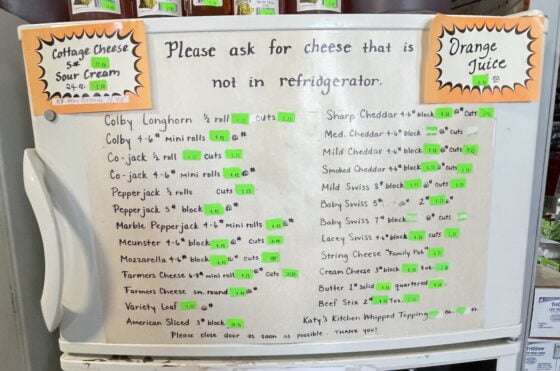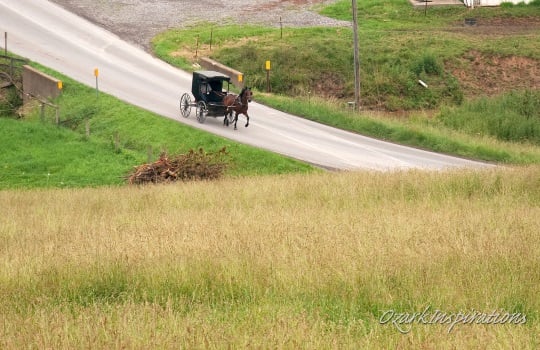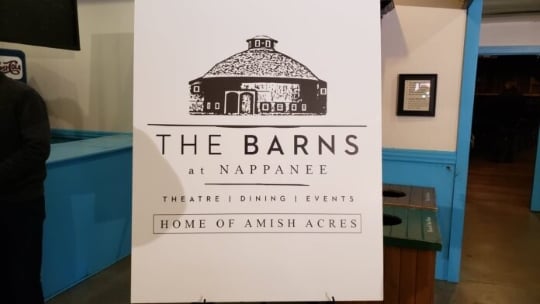Lancaster County Amish Farm Stays (2020)

Is it possible to stay on an Amish farm in 2020? Hat tip to Linda, who sends along this National Geographic article on the current state of Amish farm stays in Lancaster County. You might not have known that it’s possible to stay on an Amish farm in some places – but it is. A number of Amish households run this type of lodging business. Lancaster County in particular has a good number of them:
Out of 30-plus farm stays in the county, 13 are Amish-owned, according to Discover Lancaster. The number of Amish farm stays has about doubled in the past five years, Cliff says. Visitors to an Amish farm are usually booked in a separate guesthouse, possibly with fewer amenities—such as WiFi—than at non-Amish farm stays, which tend to be bed-and-breakfasts.

All photos via amishfarmstay.com
Here’s an example:
Amish couple Ben and Anna Riehl own Beacon Hollow Farm, in Gordonville. After a very quiet spring, Ben says guests began arriving again in late May. “People want to get out,” he says.
The dairy farm’s bookings are often international, with 30 percent from overseas, Riehl says. In the guesthouse, visitors are served a continental breakfast, typically including yogurt made with milk from Beacon Hollow’s 50 or so cows. Guests familiar with farming will walk around on their own; others are given tours. At the end of the day, Riehl enjoys visiting with his guests. “They think it’s quiet,” Riehl says. “They can’t wait to come back.”
The covid experience clobbered the robust Amish-driven Lancaster County tourist business last spring, but with things having reopened, “visitors are finding Lancaster’s promise of low-stress, nature-connected escapes an undeniable draw.” The article notes that pandemic protocols can vary, and that you should check ahead of time to find out for a given farm stay.

The Amish & Tourism
The Discover Lancaster organization informs us that visitors in 2019 said learning about the Amish was the top reason for visiting the county. Likewise it’s safe to conclude that Amish tourism is at least “a”, and perhaps “the”, key driver in a $3 billion annual local tourism industry. As far as tourism, Donald Kraybill summarizes Amish views:
The Amish attiude toward tourism is “a love-hate affair,” says Donald B. Kraybill, senior fellow emeritus at the Young Center at Pennsylvania’s Elizabethtown College. It complicates their lives, for example, creating more road traffic for their horse-drawn buggies and sometimes making them feel like animals in a zoo, “with everyone staring at them and asking them questions,” he says.
However, they certainly benefit from tourism financially, and it’s one of the many businesses—from farming to construction-related trades—where the Amish and non-Amish interact. “They’re not strict separatists,” Kraybill says.
As an aside I would add that applies most strongly in a place like Lancaster County and even then more to the most central areas of the community. Some parts of the community see very little in the way of tourists, especially given the geographical breadth of the area.

The same applies in other large and tourist-popular though still comparatively less-visited Amish settlements like Holmes County and northern Indiana. Taking the Amish population spanning 31 states and 4 Canadian provinces as a whole, your average Amish person is probably neutral on tourists, in part because he or she probably doesn’t meet many, if any of them.
With Lancaster County being ground zero for Amish tourism, it’s no surprise the Amish farm stay business is most developed there. Where to find more info if you’re thinking about visiting?

More info
For more info on Lancaster County Amish farm stays, we’ve gone fairly in-depth on this topic the past two years, first posting 6 Amish Farms Where You Can Stay As A Guest, and following up last summer with 12 Amish Farms Where You Can Stay Overnight. Checking the farmstay source site, it looks like those are mostly all still available (11 of the 12 listed in the second post remain up, so it looks like they lost one, and added two). I’m happy to see these places are up and running.








B&B Stay
My husband and I and our (then) young son stayed at an Amish-owned B&B in Holmes County about 25 years ago. The inn was run by their son & DIL (or maybe it was daughter & SIL) who were Mennonite. The whole experience was charming, relaxing, and the food was marvelous. It’s something I would like to do again. We’ve never been to the Lancaster area, although I’d like to plan a visit there someday.
Neat! Holmes Co. and Lancaster Co. are quite different in certain ways as far as the Amish community goes, but I love both places. I hope you’ll get a chance to visit Lancaster County as well.
Amish home stays
Eric, would you tell us the differences between Lancaster county & Holmes county? We have visited Holmes county, but would like to know the differences.
Good question Molly. In fact, such a good question that I’m doing a full post on it now. Stay tuned.
Here it is: https://amishamerica.com/7-differences-between-lancaster-county-holmes-county/
stay on amish farm
i would like to stay with amish
We would like to stay with Amish